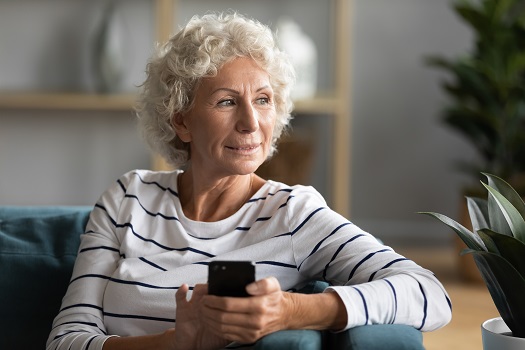According to the CDC, people of any age with serious underlying health issues may be at higher risk for contracting coronavirus. But older people are also a common at-risk group. This is because many individuals 65 and older have chronic or serious health problems that can affect an immune system already impacted by age. Here are five more specific things older people considered at risk should know about coronavirus.
1. Lifestyle Adjustments Can Strengthen an Older Immune System
An older immune system isn’t as well prepared as a younger one for a new threat like coronavirus. Still, there are ways older people can compensate for shortcomings like this. Harvard Health suggests achieving this goal with lifestyle adjustments that include:
• Eating more vegetables and fruits
• Losing weight or maintaining a healthy weight
• Exercising in a way that’s comfortable
• Washing hands to avoid infections
• Reducing stress
• Getting sufficient sleep
• Not smoking or excessively drinking alcohol
If your loved one needs help following healthy habits that can boost his or her immune system, a home caregiver can be a wonderful source of support. Not every senior has the same care needs, which means they don’t all need the same type of senior home care. Carmichael families can rely on Home Care Assistance to provide individualized care plans to meet your elderly loved one’s unique care needs. Our holistic Balanced Care Method was designed to help seniors focus on healthy lifestyle habits such as eating nutritious foods, exercising regularly, and maintaining strong social ties, and our Cognitive Therapeutics Method offers mentally stimulating activities that can stave off cognitive decline and delay the onset of dementia.
2. Social Distancing Doesn’t Mean Isolation
In many communities, older adults are being encouraged to shelter in place and avoid unnecessary travel. Social distancing recommendations also mean large family gatherings are discouraged. But this doesn’t mean older people have to stop being engaged with others. Social media is just one way seniors can stay in touch with family and friends while still staying safe.
3. A Lot of Things Can Be Delivered or Accessed Online
It can be frustrating for at-risk seniors to not be able to easily get what they need by simply going out to get it. Even essential businesses that remain open, such as banks, post offices, pharmacies, and grocery stores, can be risky because of the potential for large crowds. Fortunately, there are many home delivery and online services older people can take advantage of. Options of this nature include:
• Meal/grocery delivery services
• Package pickup and stamp delivery options from the U.S. Post Office
• Medication delivery from local pharmacies or nationwide chains that offer this option
• Local restaurant delivery services
• Online banking services
To keep your loved one from having to go out, a home caregiver can run errands for him or her, including shopping for groceries and picking up prescriptions. If your aging loved one needs help managing everyday tasks or encouragement to adopt healthier lifestyle choices, turn to Home Care Assistance, a leading provider of elderly home care. Home Care Assistance provides professional in-home caregivers around the clock to help seniors live longer, happier, and healthier lives.
4. Life Can Still Be Enjoyable
It’s not mentally healthy for anyone to worry excessively about coronavirus. While it’s important to stay updated on what’s going on, it’s still possible for older people to find things to enjoy throughout the day. This can be an achievable goal with some creativity that might involve:
• Taking up new home-based hobbies
• Visiting senior-friendly online chat groups or forums
• Using memory-boosting apps that include fun, engaging games
• Setting up a craft/relaxation area in the home or outside on a secluded deck, patio, or porch
5. In-Home Care Can Be a Welcome Resource
Older people may have understandable concerns about family caregivers bearing the burden of major shakeups to their own routines that can make it difficult for them to lend a hand when their senior loved ones need help. Though some caregivers may be considering sending their loved one to assisted living facilities, one important thing to consider is that environments such as these increase the risk of exposure to viruses simply because of the sheer number of people present. One solution that can work well for both older adults and family caregivers is in-home care. It’s a cost-effective way for seniors to get necessary assistance while still remaining in safe, controllable environments.
Aging in place can present a few unique challenges for older adults. Some only require part-time assistance with exercise or meal preparation, while others are living with serious illnesses and benefit more significantly from receiving live-in care. Carmichael, CA, Home Care Assistance are leaders in the elderly in-home care industry for good reason. We tailor our care plans based on each senior’s individual needs, our caregivers continue to receive updated training in senior care as new developments arise, and we also offer comprehensive care for seniors with Alzheimer’s, dementia, and Parkinson’s. If your loved one needs help with the challenges of aging, call one of our compassionate Care Managers today at (916) 485-4663.
With information surrounding coronavirus/COVID-19 changing by the hour, it’s challenging to stay updated on the most recent best practices for keeping seniors safe at home. At Home Care Assistance, we understand how critical it is for seniors and their caregivers to protect against coronavirus as much as possible. All our team members have received detailed communication on infection control protocols, including effective cleaning and disinfecting of surfaces and hands. Our caregivers can pick up medications, groceries, and anything else a senior needs, minimizing their interaction with large groups of people. For more information on how Home Care Assistance helps protect clients, click here: https://www.homecareassistancecarmichael.com/covid-19-home-care/.
